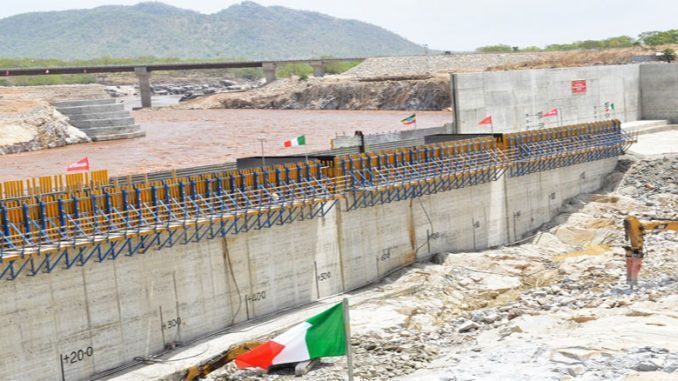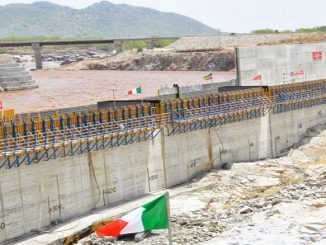
Egypt’s Foreign Minister Sameh Shoukry has revealed the latest developments concerning the REnissance Dam negotiations.
This came during the press conference held by the Arab League (AL) Secretary-General Ahmed Abul Gheit at the end of the Arab League Council in its 152 session.
Shoukry asked the Arab countries to unite against what he called Addis Abbaba’s “quibbles”
Shoukry stated that Egypt has recently noted a stringent position from the Ethiopian part and some dodges saying that the situation is “uncomfortable.”
Last month, Ethiopia’s Minister of Water, Irrigation, and Energy, Seleshi Bekele, said that Egypt officially requested that the Grand Ethiopian Renaissance Dam (GERD) be filed within seven years.
Bekele said that this issue, along with several others, will be discussed in a meeting between Egyptian and Sudanese officials slated to take place next month.
He also said that his Egyptian counterpart, Mohammed Abdel-Ati, recently passed to Ethiopia a study regarding the issue of filling the dam.
“The study requests that the dam should be filled in seven years,” he said, noting that his country replied to Egypt’s study but giving no further details.
Bekele said that the dam would start producing electricity after 15 months and work would be officially completed by 2023.
Egypt fears that the dam will reduce the amount of water reaching it through the Nile, which begins from Abyssinian or Ethiopian Plateau.
In addition, Cairo hoped to reach an agreement concerning a technical difference with Addis Ababa over the controversial Grand Ethiopian Renaissance Dam (GERD), saying the 2-percent decline of Egypt’s Nile water share will turn 200,000 feddan into non-arable lands, said Egyptian Minister of Water Resources and Irrigation Mohamed Abdel-Atti.
In his speech at the opening session of the regional workshop, which was organized by FAO on climate change impacts on agriculture and water, Abdel-Atti affirmed Egypt’s openness to a cooperative agreement with Ethiopia, saying that reaching a deal help all parties and achieves Ethiopia’s development without causing grave harms to Egypt.
“Ninety-five of Egyptian territories are desert and we rely on Nile water by 95 percent, so the water resources in Egypt is very critical to any projects or works without prior coordination,” he said.
The problematic point between Egypt and Ethiopia is a technical one related to the period of filling the dam’s reservoir with water to “avoid any significant damage on the downstream countries,” former Head of the Central Department for Technical Cooperation at the Nile Sector of the Ministry of Water Resources and Irrigation Mamdouh Mohamed Hassan.
According to a statement issued by the Egyptian Cabinet on August 22, 2019, Egypt submitted a “fair technical” solution for the disagreement between Cairo and Addis Ababa about the dam.
Egypt’s concern over its share was escalated after Ethiopia started building the dam on the Blue Nile in May 2011. A series of tripartite talks between the two countries along with Sudan has begun in 2014. One year later, the three countries reached an agreement, per which the downstream countries should not be affected by the construction of the dam.


